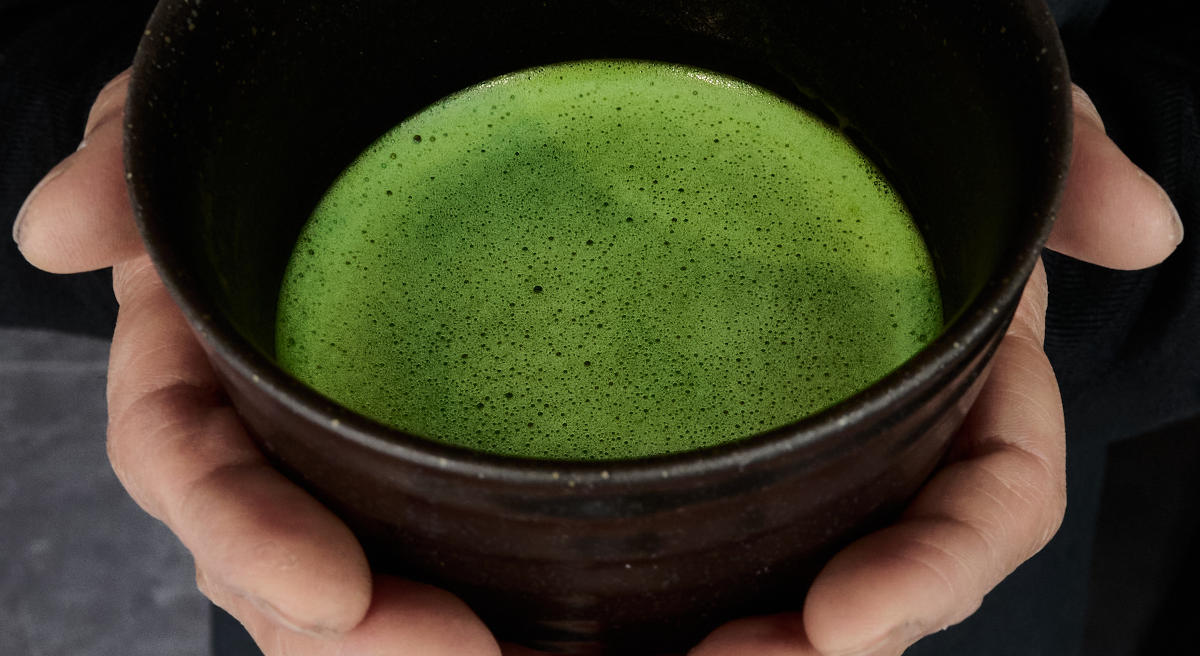
Sometimes a customer in our shop says that they drink black tea during the day, but green tea in the evening "because it doesn't contain caffeine". But is that really true? Let's sort it out!
Caffeine - what is it?
In its pure form, caffeine is a white, easily soluble powder with a bitter taste. It is a central stimulant, meaning it makes you feel alert. It can also be a diuretic, but even this effect diminishes as you get used to it. For the vast majority of healthy people, caffeine has positive effects. For example, several studies suggest that caffeine protects against dementia.
Which teas contain caffeine?
The leaves of the tea bush (camellia sinensis) contain caffeine in varying amounts. The amount of caffeine can depend on different things, such as the variety of the plant, but also when and which leaves of the plant are picked. A rule of thumb is that the smaller the leaf, the more caffeine.
One way to think about it is that the plant produces caffeine to protect itself from insects (rather than to keep us awake at work and school...) The thinner the leaf, the thinner the cell walls that are easy for the insect to bite through, and the more caffeine. As the leaves get bigger with thicker cell walls, the need for protection is reduced and the content is lower. The difference between black, green, white tea, oolong , etc. is primarily the process after picking, and it doesn't affect the caffeine content very much. So all "real" tea contains caffeine.
If you want lots of caffeine, matcha is a good choice - see the picture of the bright green tea at the top of the page. These are ground tea leaves that you whisk into water. This absorbs all the caffeine in the leaves.
How does caffeine affect the brain?
Caffeine affects the brain in several ways. When caffeine is consumed, it is rapidly absorbed into the bloodstream, penetrating the blood-brain barrier and affecting brain function.
One of the main effects of caffeine on the brain is that it blocks a neurotransmitter called adenosine, which is naturally present in all cells of the body. When adenosine levels increase in the brain, we become tired and sleepy. Caffeine blocks the adenosine receptors, leading to increased alertness and reduced fatigue.
Caffeine can also increase the release of neurotransmitters such as dopamine, noradrenaline and serotonin, which are important for brain function and mood regulation. These substances affect the reward system and improve mood and focus.
But overconsumption of caffeine can also have negative effects on the brain. It can lead to anxiety, insomnia, heart palpitations and increased irritability. It can also reduce appetite and cause dehydration, which can affect brain performance. If you have a history of heart palpitations, it may be a good idea to review your caffeine intake.
How long does caffeine stay in the body?
This is highly individual, and depends on a number of factors. For a healthy person, 5 hours is a typical time to halve the amount of caffeine in the body after consuming a few cups of tea, but there is a big difference from person to person. For people with liver disease, the time can be much higher, and times up to 150 hours have been measured;
What about red tea?
Well, what is often called red tea, i.e. rooibos, is actually an herbal tea. It comes from a different plant (aspalathus linnearis), and is naturally caffeine-free.
Is there no decaf when it comes to tea?
Sure, you can remove the caffeine from the tea leaves afterwards, and then you get an almost caffeine-free tea. By "brewing" it in liquid carbon dioxide, you can dissolve the caffeine. This removes most of the caffeine, although it does affect the taste somewhat. You can then extract the caffeine and reuse the carbon dioxide again.
You can do something similar at home, as caffeine dissolves quickly even in water. Brew the tea for ½ minute, pour off the water and then let it brew longer. This won't remove all the caffeine, but it will reduce the content quite a bit.
Theine or caffeine?
But wait, is it caffeine or theine in tea? In 1821, the German chemist Friedlieb Ferdinand Runge managed to isolate caffeine in coffee. A few years later, in 1827, a French man named Oudry isolated a white substance he called "théine" i.e. theine from tea. Another 11 years later, two other chemists showed that theine and caffeine were actually the same substance. We think it's unfortunate that it wasn't discovered in tea earlier, because it would have been called theine instead, but that's how it goes. That's why in scientific circles we say caffeine, regardless of its origin. To emphasize when the caffeine comes from tea, the word tein is sometimes still used.